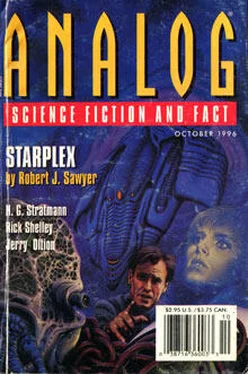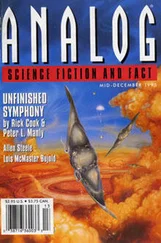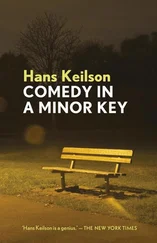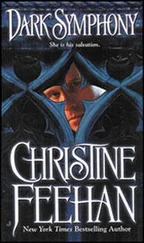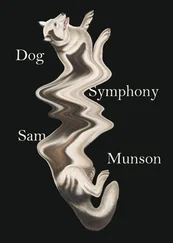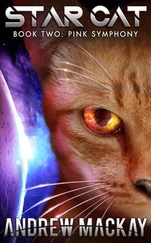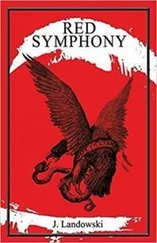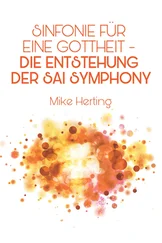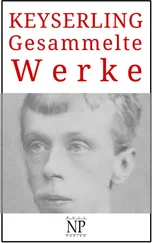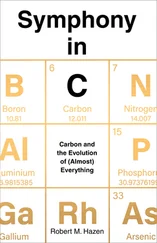H. Symphony in a Minor Key - Symphony in a Minor Key
Здесь есть возможность читать онлайн «H. Symphony in a Minor Key - Symphony in a Minor Key» весь текст электронной книги совершенно бесплатно (целиком полную версию без сокращений). В некоторых случаях можно слушать аудио, скачать через торрент в формате fb2 и присутствует краткое содержание. Год выпуска: 1996, Издательство: Dell Magazines, Жанр: Альтернативная история, на английском языке. Описание произведения, (предисловие) а так же отзывы посетителей доступны на портале библиотеки ЛибКат.
- Название:Symphony in a Minor Key
- Автор:
- Издательство:Dell Magazines
- Жанр:
- Год:1996
- ISBN:нет данных
- Рейтинг книги:5 / 5. Голосов: 1
-
Избранное:Добавить в избранное
- Отзывы:
-
Ваша оценка:
- 100
- 1
- 2
- 3
- 4
- 5
Symphony in a Minor Key: краткое содержание, описание и аннотация
Предлагаем к чтению аннотацию, описание, краткое содержание или предисловие (зависит от того, что написал сам автор книги «Symphony in a Minor Key»). Если вы не нашли необходимую информацию о книге — напишите в комментариях, мы постараемся отыскать её.
Symphony in a Minor Key — читать онлайн бесплатно полную книгу (весь текст) целиком
Ниже представлен текст книги, разбитый по страницам. Система сохранения места последней прочитанной страницы, позволяет с удобством читать онлайн бесплатно книгу «Symphony in a Minor Key», без необходимости каждый раз заново искать на чём Вы остановились. Поставьте закладку, и сможете в любой момент перейти на страницу, на которой закончили чтение.
Интервал:
Закладка:
Suddenly he heard the Cossacks yell excitedly. Glancing up again, he saw them pointing toward the barrel of a rifle poking through the second-floor window of a building on his left. There was a sharp crack! and the tall black hat of one of the Cossacks went flying off.
Immediately two of them dismounted and ran into the building. The other pair quickly brought themselves and all of their horses close to the front of the building, out of range of the rifle. Robbins braced himself to make a run for the alley containing the portal while the Cossacks were distracted, but thought better of it. The two by the building were directly across the street from the entrance to the alley. They would probably see him before he reached it—and he doubted they were in any mood to take a prisoner.
From the building Robbins heard men shouting—and then a woman scream, “No!” A moment later the two Cossacks emerged dragging a young man, and a woman Robbins assumed was his wife. She was in her late teens, with auburn hair, and obviously pregnant. She pleaded with their captors not to hurt her husband Josef, her baby, or her. The young man just shouted curses at them.
The Cossacks laughed harshly. One of the pair still on horseback dismounted and said something to the couple in broken German. Robbins couldn’t make out all of it, but what he did understand made him feel sick. Then the Cossack nodded to the one holding the woman. The latter pulled her down on her back to the dirty street, pinning her arms and grinning wolfishly in patient anticipation as she struggled futilely. The other one knelt beside her, and roughly pulled and ripped her long skirt high above her waist.
Paralyzed with horror, Robbins stared open-mouthed at the scene playing out in front of him. The bare thrashing legs and waist of the woman. Glimpses of her protruding, pregnant abdomen. The husband, locked in a tight bear hug by the Cossack standing behind him, no longer cursing but pleading with them in the names of Jesus and the Blessed Virgin. The other Cossack, standing with his back to Robbins just in front of the young woman’s feet, slowly, methodically, pulling down his pants.
Robbins clenched his fists, reflexively praying to God himself to tell him what he could do to help her. He wasn’t a fighter, he didn’t have any kind of weapon. If he tried to stop them they’d just take a minute to kill him, and then get on with it.
What could he possibly do to change things —.
“Nothing changed.”
Robbins slumped down into the cushioned chair in the Chancellor’s office. He was still dressed in a long coat, coarse woolen trousers, white shirt and vest—typical dress for a Viennese bourgeois, c. 1827.
The Chancellor sat behind her desk, a look of concern on her face. Everett sat in a chair next to him.
“I translocated to Vienna again a little after dawn on March 27, 1827. After I came out of the alley containing the portal, I walked several blocks and found a street vendor selling newspapers.” Robbins paused dejectedly. “On the front page it said, ‘Yesterday afternoon, our beloved Herr Beethoven passed on to his reward.’ Then I returned to Earth, and translocated back to Vienna on the afternoon of March 29, 1827.” Briefly he described blending in with a large crowd of mourners as the composer’s funeral procession wended its way through the streets of Vienna.
He looked at Everett. “Why didn’t it work?”
The latter shook her head. “I don’t know. From the standpoint of transcosmological physics, there are two possibilities. One is that I’ve been wrong all these years about the pliable’ nature of TCE’s history. The other is that, by injecting Beethoven with the vaccine, you may actually have prolonged his life—but in a new ‘subbranch’ universe you created by that intervention. The problem is, if that were so, we might be able to translocate only into the ‘original’ Universe where he died on the same day as in our history. Thus, from our point of view, we will seem to have done nothing.”
So that’s that. Robbins loosened the collar of his starched linen shirt and sighed. So close—.
“But, there is another possibility.”
He looked at Everett again.
“The reason may not be transcosmological, but medical. Maybe Harrison’s opinion that Beethoven died of hepatitis is wrong. Maybe you didn’t give the vaccine properly.”
Robbins frowned. Well, he thought he had—.
“Also, Harrison said the success rate with the vaccine was 95 percent. That means it would fail one time out of twenty. Maybe we’ve just been unlucky.”
Robbins looked thankfully at Everett, feeling like a condemned prisoner who had received, if not a full pardon, at least a stay of execution.
The Chancellor asked, “What do you propose we do?”
Everett shrugged. “Harrison’s the expert on the medical possibilities. I suggest we discuss them with him.” She paused. “Speaking of Harrison, wasn’t he supposed to be at this meeting too?”
Just then the office door opened and Harrison walked unsteadily into the room. He collapsed into an empty chair and wiped a pale forehead with his palm. Right now, Robbins thought, he looked more like a patient than a physician.
“Sorry I’m late,” he mumbled. “I—Dr. Ertmann is dead.”
The Chancellor frowned. “Who?”
“Dorothy Ertmann. She’s been with me for five years.”
“I’m sorry to hear this.” The Chancellor looked truly concerned. “How did it happen?”
“She killed herself.” Harrison massaged his eyes. “At least she knew what to inject herself with to make it quick. Relatively painless.”
Everett said, “Do you know why she did it?”
“She left a note. But it wasn’t very specific. Something about her being so sorry that she’d betrayed the Institute and all of us. Especially me.” Harrison sighed. “Her closest relative is a younger sister in Des Moines. I’ll have to call her.”
The Chancellor said, “I know how upset you must be, and we won’t keep you here any longer than necessary. Before you arrived, we were discussing why Dr. Robbins’s project failed.”
Harrison listened patiently as Everett repeated sotto voce what she’d told them earlier. He said, “Based on our tests, I’m certain our diagnosis of the cause of Beethoven’s death is correct. And I taught Dr. Robbins to use the injector myself. It’s so simple to use, it’s virtually idiot-proof.” He glanced at Robbins. “Sorry, that didn’t come out right.”
“No offense taken.”
Harrison continued, “Also, the vaccine won’t work if the recipient can’t generate a good immune response, or if the infection is too severe.”
Everett said, “Could the dose itself have been defective in some way?”
Harrison shook his head. “No. I tested it myself shortly before giving it to Dr. Robbins. It never left my possession until I gave it to him.”
“Then what do you suggest, Dr. Harrison?” the Chancellor asked.
Harrison shrugged. “Dr. Robbins should go back again, and inject Beethoven with nanoscrubbers. Barring previous treatment with a specific blocking agent, they’re essentially M-safe.”
Everett frowned pensively at Harrison. “While I was listening to you I thought of another possibility.” She paused. “Deliberate sabotage.”
Harrison sat straight up in his chair. “What are you suggesting?”
“It strikes me that both the transcosmological and medical reasons for this Mure are so remote that we can’t rule out the human factor.”
“I told you, I tested the vaccine myself and kept it with me until—.”
“I’m not accusing you of anything. Or Dr. Robbins either.”
Читать дальшеИнтервал:
Закладка:
Похожие книги на «Symphony in a Minor Key»
Представляем Вашему вниманию похожие книги на «Symphony in a Minor Key» списком для выбора. Мы отобрали схожую по названию и смыслу литературу в надежде предоставить читателям больше вариантов отыскать новые, интересные, ещё непрочитанные произведения.
Обсуждение, отзывы о книге «Symphony in a Minor Key» и просто собственные мнения читателей. Оставьте ваши комментарии, напишите, что Вы думаете о произведении, его смысле или главных героях. Укажите что конкретно понравилось, а что нет, и почему Вы так считаете.
